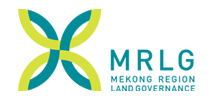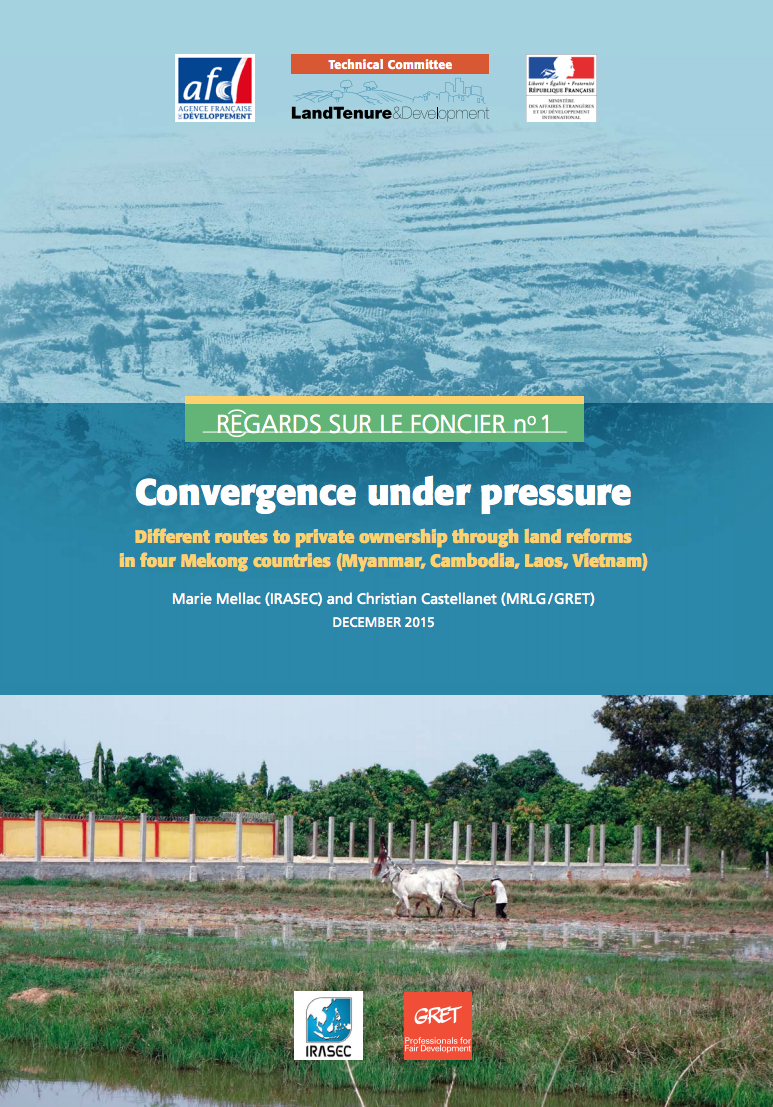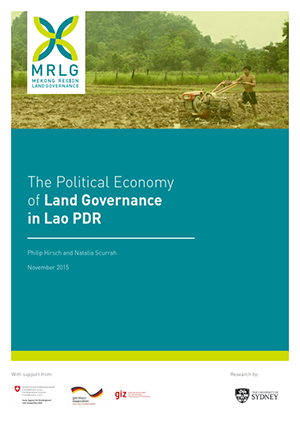Location
Project Description
Land governance is at the center of development challenges in Cambodia, Laos, Myanmar and Vietnam. Governments are revising land policies and practices in order to face these challenges. The project aims to (i) assist the emergence of more favorable policies and practices for securing the rights and access of family farmers to land and natural resources; and (ii) to strengthen the effectiveness of concerned stakeholders through learning, alliance building and regional cooperation.
The MLRG project is based in Laos, with local offices in three other countries: Cambodia, Myanmar, and Vietnam. It supports a wide range of activities (training, exchanges, case studies, focused research, documentation, workshops and seminars) at local, national and regional levels.
The MRLG can support initiatives through three component windows, the first is a learning and advocacy ongoing activity platform supported by National Facilitators in each country. The second two are funded through our Grant Facility open to all stakeholders based on demand and proposals prepared. A short term and immediate response window is the Quick Disbursement Fund (QDF). The second longer term and competitive proposal process is the Innovation Fund (IF). The learning and advocacy activity platform prepared on an annual basis in consultation with stakeholders to organize information collection, analysis, and dissemination, and for horizontal learning and structured learning visits, coaching and pairing, training and organizational strengthening, at the national and regional level.
Members:
Resources
Displaying 96 - 100 of 108The political economy of land governance in the Mekong Region
This report presents a political-economic analysis of land governance at the regional level, focusing on the Mekong Region. The primary emphasis is on Cambodia, Laos, Myanmar and Vietnam, but the paper also takes into account the regional role and land governance experiences of Thailand and China.
The Political Economy of Land Governance in Myanmar
This country report commences with a brief identification of the political-economic context that sets the parameters for existing land governance and for
reform in Myanmar. It then explores the politicaleconomic dynamics of land relations and identifies key transitions in land relations that affect access to land and tenure security for smallholders. Finally, the report discusses key openings for, and constraints to, land governance reform.
Convergence under pressure
All four countries in continental South-East Asia featured in this paper (Myanmar, Cambodia, Laos and Vietnam) are experiencing land conflicts that could potentially destabilise their governments.1 Thailand is in a similar situation in many respects, as it has faced mounting tensions over land tenure since the 1990s (Hall et al., 2011). These conflicts are escalating, sometimes violent, and are attracting more and more attention from the media. They have mobilized numerous local and international NGOs, and often triggered the development of an increasingly visible national civil society.
Convergence under pressure
All four countries in continental South-East Asia featured in this paper (Myanmar, Cambodia, Laos and Vietnam) are experiencing land conflicts that could potentially destabilise their governments.1 Thailand is in a similar situation in many respects, as it has faced mounting tensions over land tenure since the 1990s (Hall et al., 2011). These conflicts are escalating, sometimes violent, and are attracting more and more attention from the media. They have mobilized numerous local and international NGOs, and often triggered the development of an increasingly visible national civil society.
The Political Economy of Land Governance in Lao PDR
This country level analysis addresses land governance in Laos in two ways. First, it summarises what the existing body of knowledge tells us about power and configurations that shape access to and exclusion from land, particularly among smallholders, the rural poor, ethnic minorities and women. Second, it draws upon existing literature and expert assessment to provide a preliminary analysis of the openings for and obstacles to land governance reform afforded by the political economic structures and dynamics in the country.




